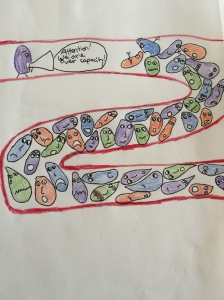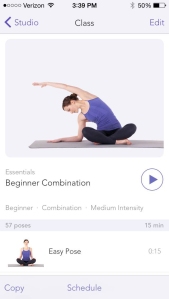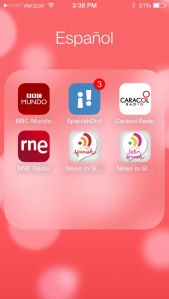SIBO (Small Intestinal Bacteria Overgrowth)

I was diagnosed with the dreaded SIBO about 3 months ago now and I can officially say, I have beaten it! It’s difficult to be extremely happy about because I don’t feel a whole lot better. My digestion has improved, but I still have to stick to a strict diet due to the leaky gut and candida issues going on. I tried to incorporate gluten again which left me with a wicked 3 day hangover (see my blog post on how to get through symptom flare up). However, I must embrace small victories and realize it is all part of solving the greater puzzle. Under this section I would like to incorporate a little bit of information, as well as diet tips and how I coped and beat it ultimately. See the SIBO blogs that I follow on the side for blogs that are written by people far more knowledgable than I on the subject.
But I do know a fair amount about it now, so here is my SIBO rundown. SIBO refers to Small Intestinal Bacteria Overgrowth, and it is just that. The bacteria in your small intestine have gotten a little out of control, there is an overgrowth, an abundance, too many bacteria hanging out in the small intestine. When I was diagnosed with this several people asked me if I had caused it by ingesting too many probiotics. This seems to be a common misconception. SIBO is not caused because you ate too much yogurt; the probiotics you take do not suddenly turn on you, colonize and conspire to make you ill. No, no. Probiotics in food or capsules are an excellent way to rebuild bacteria and promote healthy digestion, even through the SIBO process. The direct cause of SIBO is unknown, but it is suspected that it can be caused by many things including: antibiotics, antacids, birth control pills, parasites, invasive surgeries, etc. Mine was probably caused by a combination of the antibiotics, the PPI (Protein Pump Inhibitor) I was on for several months and possibly my gallbladder removal surgery from a few years ago. Symptoms of SIBO are similar to IBS (Irritable Bowel Syndrome), they include bloating, belching, acid reflux, constipation, fatigue, brain fog, and many more. SIBO can lead to much more serious health conditions and severely impair the immune system to function, so while it’s a new disease, it’s an important one to pay attention too!
There are three ways to beat SIBO.
1) The antibiotic:Xifaxin. This is not the harmful type of antibiotic that I had taken before. This drug stays in the small intestine and does not venture forward to kill off your beneficial bacteria. Unfortunately few insurance companies cover the cost of this drug. The good news is that there is a patient assistance program through Salix where you can apply and if you qualify they will give you the drug for free! Ask your practitioner about this program.
2.) Herbal Antibiotics.
This was how I beat my SIBO! I took Allicin (a form of garlic), Goldenseal, and Neem. I had to take these supplements for 4 weeks and I took about 10 pills every day. There are a few other options for herbal antibiotics, such as oregano. Consult with your provider about which herbs will work best with your bod.
3.) Liquid Diet
There is a product which you can drink to get most of the necessary nutrients from for 2 weeks and you don’t eat any solid food. This sounds like hell, but apparently it is very effective at getting rid of SIBO.
Following a treatment plan, your medical provider will put you on what is called a prokinetic to help make sure that SIBO stays gone. One prokinetic option is a low dose antibiotic to keep the small intestine clear. I was on low dose naltraxone, which is a little different method. See this blog post from one of my favorite blog gals about what the function of this drug is. http://thehealthyapple.com/low-dose-naltrexone/
Then there is the diet. Oh the joy continues.
Actually, the SIBO diet is not so bad. It just takes a lot of prep and thinking ahead. Please read the other blogs and Dr. Alison Siebecker’s website for an extensive overview of the diet. The jist of it is a version of the Paleo diet; no grains, no sugars, no starchy vegetables. The hardest thing for me to give up was rice and beans. The hardest thing for me to start eating was the quantity of meat. It’s difficult to get used to, but if you have any type of digestive issue or autoimmune condition, there’s a 99% chance you will do better with Paleoish diet, so get used to that chicken! My digestion has improved immensely with this diet, and I can tell you after having gone through digestion hell, that it is well worth it!
When you first start the diet, it’s common to feel really hungry all the time. The bacteria are freaking out in your intestine because they are not being fed all those grains they are used to. So they start sending of signals to your brain that say, “Feed me, feed me!” I remember feeling very frustrated because no matter how much I ate, I never felt full. I also suffered from low blood pressure, which caused me to feel dizzy and on the verge of passing out all the time. So don’t be surprised if your body has some difficulty adjusting to the diet at first. Here are some ways to cope with the transition to the diet:
1) Make sure that you ARE eating.
Don’t be lazy and think you are just going to starve until your SIBO is over. This is a sure fire way to fail. You will get so frustrated with your hunger that you will likely cheat, eat something you’re not supposed to and prolong the SIBO. So you gotta put in the effort. Sit down and plan your meals for the week. Think about what snacks you can make to take on the go and what is a good food prep day or time for you.
2.) Eat fat
Eat fattier cuts of meat. It may seem weird to start grilling up hamburgers and ditching the rice bowls you are used to eating (especially if you are a health nut like me), but trust me, it will make the transition much easier. Fry your fish with olive or coconut oil instead of baking it. Eat peanut butter and almond butter in moderation as well.
3.) Make snacks.
Paleo snacks are harder, but not impossible. See the SIBO blogs for some good ideas on quick snacks. I will post some more blog posts about my favorite SIBO snacks, some of them include roasted carrots, bananas and almond butter, and hard boiled eggs.
4.) Eat protein and salt
I suffered from low blood pressure at the beginning of the diet. Therefore, it was not only crucial that I was eating frequently, but also that I was eating the right things. Shoving my face with empty calories wasn’t going to cut it. I had to make sure I snacked on protein heavy things and incorporated a lot of salt into my diet. A salted hardboiled egg was the best snack for me. This is good advice for those coping with adrenal fatigue as well.
5.) Eat lactose free dairy
I was hesitant to incorporate dairy into my diet again because I had eliminated it to see if it was contributing to my illness. But I found that digestively I could tolerate at it well at this time. Meals are lot better with some hard lactose free cheese on top! I also made a lot of lactose free yogurt, which was a great source of probiotics and made for yummy breakfasts.
6.) Eat Eggs
I was never a huge egg eater and in fact, I recently became aware of my egg sensitivity. However, I ate a lot of eggs during my SIBO diet when I could tolerate them. They are an excellent, quick fix of protein, great for snacks,meals, and in baking.




